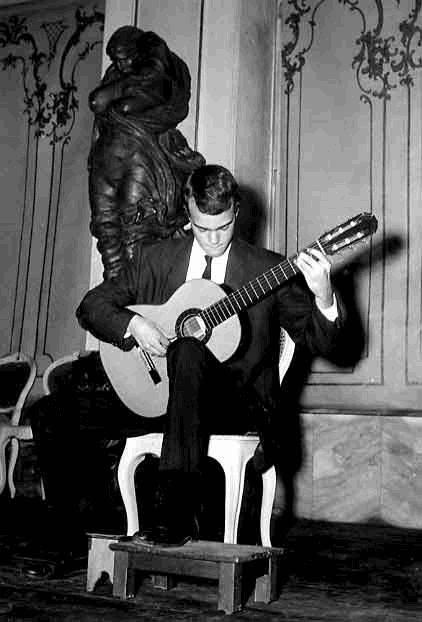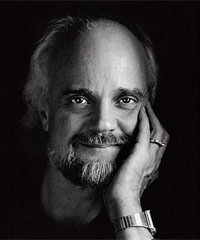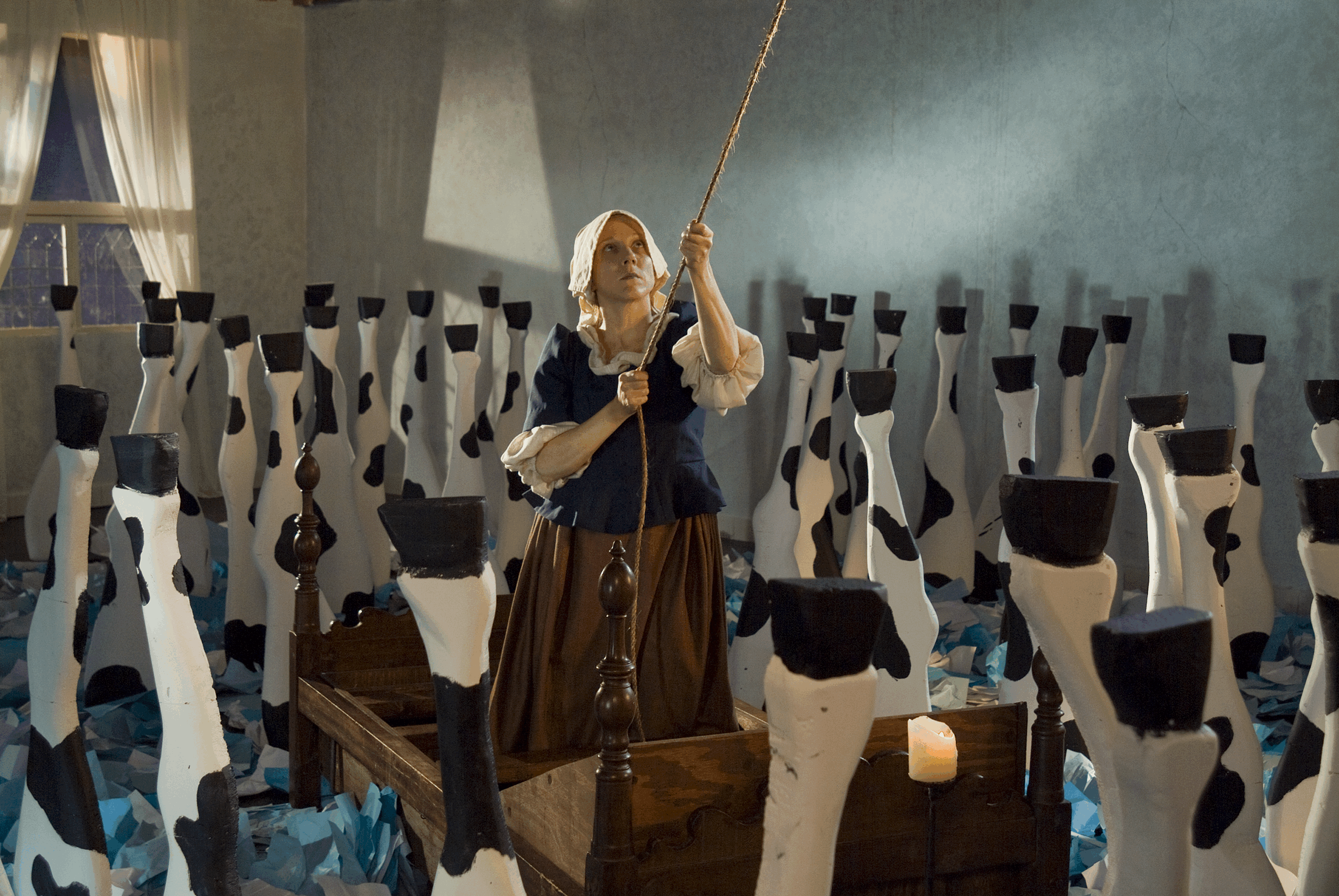Written in early October for “En movimiento,” my bimonthly column for Caimán Cuadaernos de Cine, written in alternation with Adrian Martin, for their November 2013 issue. — J.R.
It was a little over 25 years ago, shortly after I moved to Chicago, that I first encountered the staggering work of Peter Thompson, a local independent filmmaker I’d never heard of. I saw his first four films (he was never to make more than six) –- two “diptychs” consisting of films about his parents (Two Portraits, both made in 1981) and Universal Hotel and Universal Citizen, both made in 1986, exploring respectively eleven photographs and two drawings of a Polish POW who was frozen and then thawed by a German prostitute as part of a Nazi experiment and Thompson’s attempts to photograph a Libyan Jewish smuggler and former Dachau inmate in a Guatemalan jungle. Not long afterwards, seeing Thompson interviewed one afternoon on local TV, I felt an urgent desire to become friends with him, and we met soon afterwards.
Eventually we became neighbors as well as good friends, and I saw his two subsequent films, the 83-minute El movimiento, (2003), charting the complicated relationship over a decade between himself, an American anthropologist (William C. Hanks), and Don Shabo, a Yucatec Mayan shaman; and the 52-minute Lowlands (2009), an even harder to describe fictional and non-fictional meditation about the wife and widow of Vermeer, the French-Dutch war of 1672-1675, and recent Serbian war crimes.
Nothing drives me crazier than the presumption of film critics who pretend to judge the cinema of specific years or countries or genres, as if it were possible to know all the films involved. I regard Thompson as the greatest Chicago filmmaker I know, but there’s no reason to feel guilty about not having heard of him, because he remains unknown almost everywhere. When, at my urging, he submitted Lowlands to the Rotterdam and Venice film festivals, both rejected it without explanation, and though I was shocked each time, I probably shouldn’t have been. No era or festival director or critic can claim to be right all the time.
What makes it especially difficult to describe Peter’s work is that, like most major filmmakers –- like Chaplin, Dreyer, and Bresson, for instance –- he reinvents cinema for his own purposes. It derives from diverse aspects of his background: as a classical guitarist who studied with Andrès Segovia, as an undergraduate and graduate student in comparative literature, as a onetime Navy photojournalist and photography curator, and even as a first cousin of the special effects pioneer Douglas Trumbull. No less pertinent is the fact that even though his themes are monumental and tragic (such the death of his father, provoked by his mother so that she could marry someone else, and the Holocaust and other human catastrophes), his films are quiet meditations resembling detective stories, not so much unemotional as distillations of emotion, poetically and musically inflected.
Not long after he discovered and told me that he had inoperable cancer, the Christmas before last, he devoted much of the remainder of his life to producing a DVD box set containing all of his work that is expected to become available on Amazon before this column appears in print. [Note: It has just become available today, on October 31; please go here for more details.] Its title is simply Peter Thompson: 6 Cinematic Essays, 2 Interviews +…, and the plus sign and the ellipsis of three dots are in some ways as important as the preceding five words.
I heard about Peter’s death in May, halfway through my two-week stint of teaching American independent cinema at Béla Tarr’s Filmfactory in Sarajevo, showing filmmakers that ranged from Stroheim to Deren to Charles Burnett. Coincidentally, I had already planned to show Universal Hotel the next day, at an unofficial screening session held at the apartment of four of the filmmaking students and attended by ten of them. But the film had such an impact that they insisted on seeing Universal Citizen and Two Portraits as well. Among others, Kaori from Japan, Reza from Iran, and Pilar from Spain all sent me emails about how deeply they were affected, responding in different ways to different things. And even though I generally needed to show them films with English subtitles because all but two of the sixteen students knew English only as a second language, Peter’s voiceovers, verbose and unsubtitled, came through loud and clear.



